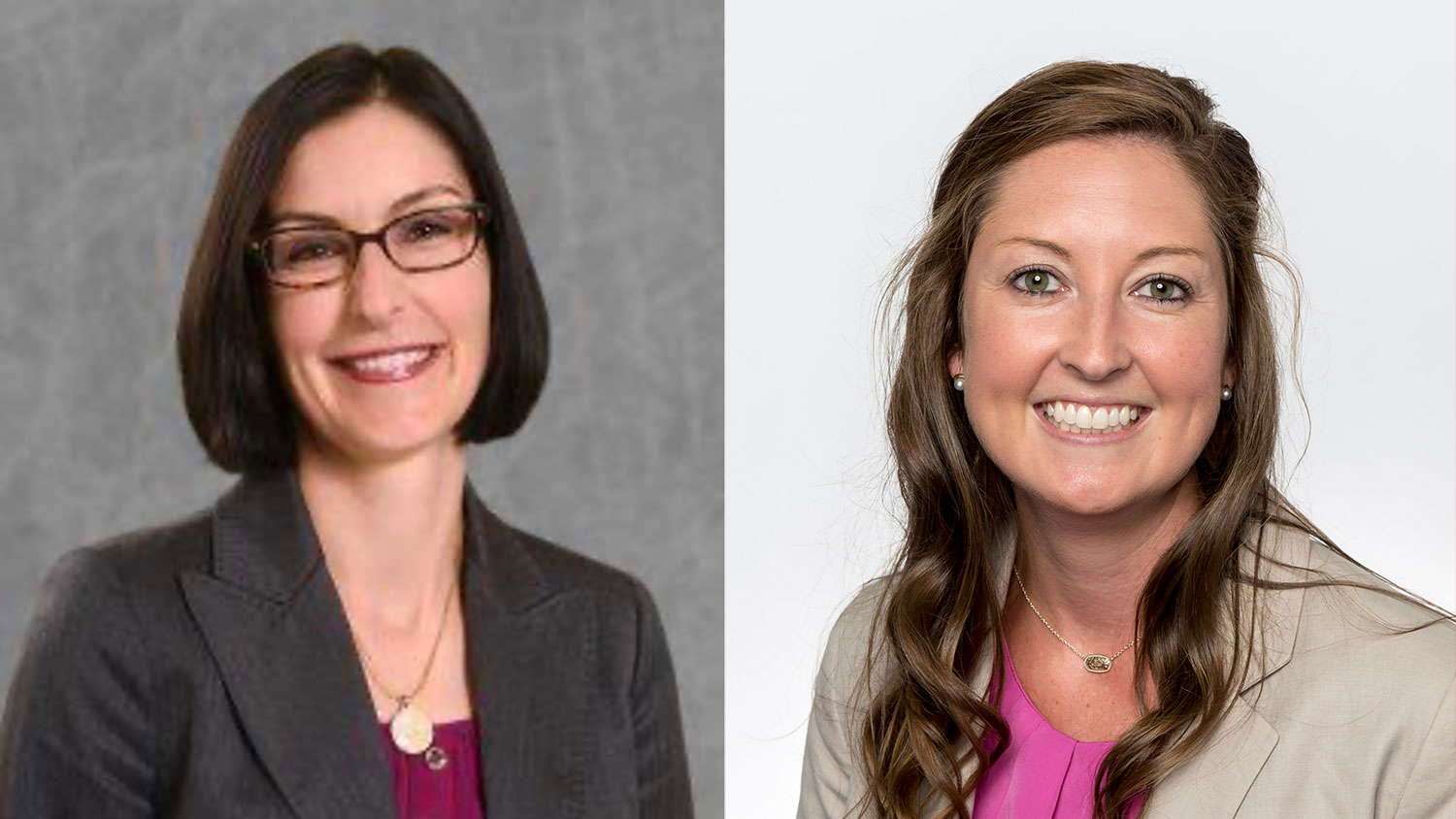Q+A with Sonia Murphy and Dr. Katherine Drake Stowe

The NC Agricultural Foundation, Inc. (Ag Foundation). is comprised of over 100 leaders in North Carolina agriculture. This interview is the second of a series highlighting members of boards, like the Ag Foundation, that support NC State College of Agriculture and Life Sciences. The below are excerpts from a conversation between Sonia Murphy, president of the NC Agricultural Foundation, Inc. and assistant dean for CALS Advancement, and Dr. Katherine Drake Stowe ’09, member of the Ag Foundation and is currently serving as the president of the NC State Alumni Association Board of Directors.
SM: Katherine, I appreciate your taking time to chat with me today and for your service on the Ag Foundation board. To get us started, can you tell me about your connection to NC State?
KDS: Sure thing. I graduated in 2009 with a degree in Polymer & Color Chemistry from the Wilson College of Textiles. Then I completed an MS in Crop Sciences in 2012 and in 2016 I completed a Ph.D. in Crop Science. I’m also the director of the nonprofit U.S. Soybean Research Collaborative (USSRC). The director’s role is to engage soybean farmers with public and private groups and federal and state agencies in ways that will go beyond traditional research.
SM: You have many demands on your time. When you are considering membership on an advisory board, do you have personal criteria for joining a board?
KDS: Yes – impact, personal interest, and network. Understanding the impact of the board is most important. It must support something that I’m passionate about and have personal and/or professional interest in. My next consideration is how will the board grow my network and help me meet people who are also passionate about agriculture and moving the industry forward.
SM: Why do you think others should consider becoming a part of the Ag Foundation board?
KDS: I think many people don’t understand the impact of the Ag Foundation and the influence one can have as a member on the types of projects being funded. Serving on the Ag Foundation board gives you a window into the really good work the College is doing. Seeing where the dollars are being spent and making sure I’m articulating needs that I see in the ag community that need funding is important to me.
When you learn more about what is going on with the College, it makes it easier to be an advocate in the community because you understand the impact of the College’s research and extension network. For example, Nickels for Knowhow. As board members, have a say in the projects that are funded through that program. It’s interesting to see the research and extension projects that are being funded and impact of that funding.
SM: In what ways do you think membership on the Ag Foundation board can positively impact the CALS community and the greater agricultural community in North Carolina?
KDS: Being a champion for the College and the extension network is an important role for the board. Our researchers, teachers and extension professionals do important work. Sometimes I think people are not vocal advocates for the College because they aren’t knowledgeable. Serving on the board has helped me learn about the impact the College has on the ag community, so I can clearly advocate for funding for Nickels for Knowhow or other funding to benefit the College. Board meetings are energizing to me because I get to learn more about this great community I’m part of.
North Carolina is a special place because of our agricultural diversity. We aren’t just a “corn state” or “soybean state”. Many of our farmers grow several different crops and grow animals on their farm. A systems approach to agriculture is important to make sure that everyone benefits. When one piece of North Carolina’s agriculture wins, we all win.
SM: Do you have an interesting or impactful experience since you joined the Ag Foundation board that you would like to share?
KDS: The process for deciding how the Nickels for Knowhow funds were going to be allocated was a great opportunity for me. I served on the research committee. It was interesting to hear everyone’s ideas and contribute my own. We had a great discussion on how pieces of research could interconnect and how we could build on ideas from other groups. The Ag Foundation is one of the few places where all commodities are represented and can share ideas and needs. It’s a great place to hear from the ag community and understand where the gaps are. It’s a unique and interesting opportunity for everyone to come together to talk about their biggest challenges.
SM: When we surveyed board a couple of years ago, networking was/is very important to board members. What has been your experience with networking at Ag Foundation meetings?
KDS: I think that the NC ag community genuinely like each other and enjoy working with each other. Seeing people you who you work with and are friends with at an Ag Foundation board meeting is something I enjoy. Connecting professionally with people in committees and brainstorm sessions helps me learn about what is going on. Continuing to grow your network is important. You never know when those connections in the future. Seeing people face to face. There is nothing to replace the hallway conversations and ideas that get generated when people are in the same physical space.
SM: Thank you for sharing your time with me and the Ag Foundation board, Katherine. Any closing thoughts?
KDS: As part of the ag community, I realize how lucky we are to have a robust extension network and research enterprise. Service on the Ag Foundation is a great way, at least from a time standpoint, to give back to an institution that has done so much for North Carolina agriculture.
- Categories: